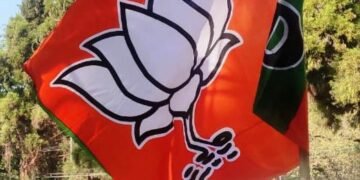The seeds of discontent in Bangladesh were sown in June when the high court reinstated a 30 per cent job quota for descendants of 1971 freedom fighters, only to be later reduced to 5 per cent by the Supreme Court on July 21. This contentious policy, first introduced by Sheikh Mujibur Rahman in 1972 and briefly abolished by Sheikh Hasina’s government in 2018, has long been a point of contention. At its core, the quota system exposes a deep-seated divide between those who fought for independence from Pakistan and those who opposed it, highlighting a lingering legacy of conflict and collaboration that continues to simmer beneath the surface of Bangladeshi society.
In a shocking turn of events, Bangladesh Prime Minister Sheikh Hasina made a sudden and unexpected escape to India by helicopter on August 5, catching everyone off guard, including her Indian counterparts. Hasina’s 15-year tenure, leading the Awami League party founded by her father, Sheikh Mujibur Rahman, had been marked by a mix of stability and controversy. The legacy of her father’s assassination in 1975 still cast a long shadow, with many suspecting that Lt. Gen. Zia-ur Rahman, who seized power in 1977, had a hand in the conspiracy. Although never directly implicated, Zia’s subsequent rehabilitation of the mid-level military officers involved and their appointment as diplomats abroad only fueled the whispers of complicity. As Hasina fled to India, the ghosts of Bangladesh’s tumultuous past seemed to stir once more.
Bangladesh’s political landscape remained fractured, with the Bangladesh Nationalist Party (BNP), helmed by Begum Khaleda Zia since her husband’s 1981 assassination, forming an uneasy alliance with Jamaat-e-Islami. The latter’s reputation remained marred by its collaboration with Pakistan before 1971, fueling ongoing tensions. Meanwhile, President Zia-ur Rahman’s strategic pivot towards the West, Saudi Arabia, and China reoriented Bangladesh’s foreign policy, further complicating the country’s delicate political balance.
The Bangladesh Army’s grip on power finally loosened in 1990, when Lt. Gen. Hussain Muhammad Ershad was toppled in a wave of popular protests. In a striking parallel to Sheikh Hasina’s own departure, Ershad’s ouster was facilitated by a united front of opposition parties, including the Awami League, BNP, and Jamaat. As the Army relinquished control, democracy was reborn, but old rivalries and divisions quickly resurfaced, plunging the country back into a familiar cycle of political tension and strife.
Bangladesh’s democratic fabric has been steadily eroded, not by political rivalry, but by the systematic undermining of fundamental institutions and norms. Sheikh Mujibur Rahman’s descent into authoritarianism, marked by the suppression of opposition and media, ultimately led to his tragic downfall. His daughter, Sheikh Hasina, has similarly concentrated power over the past 15 years, neutering the judiciary, media, and opposition parties.
The final blow to Hasina came when she abandoned the long-standing principle of neutral interim governments overseeing elections, prompting a predictable boycott by opposition parties in the January 2024 polls. This unfortunate tradition of electoral boycotts has its roots in the country’s troubled past, echoing similar protests during President Ershad’s rule. The consequences of such actions are clear: a democratic system hollowed out by the very leaders sworn to uphold it.
Under Prime Minister Sheikh Hasina, Bangladesh achieved significant economic and social progress, leveraging its position as a major garment export hub to capitalize on the shift of low-cost manufacturing from China. However, the Covid-19 pandemic disrupted this growth trajectory, with exports declining from $45.99 billion in 2019 to $39.05 billion in 2020, before recovering to $44.38 billion in 2021, still short of pre-pandemic levels.
Despite subsequent growth to $54.7 billion and $55.79 billion in 2022 and 2023, respectively, the World Bank notes that Bangladesh’s post-pandemic recovery has been hindered by a balance of payments deficit, financial sector vulnerabilities, and global economic uncertainty. Moreover, persistent economic fragility, exacerbated by US sanctions, loss of preferential tariffs, and cronyism, has necessitated a $4.7 billion IMF bailout, underscoring the need for structural reforms to ensure sustainable growth.
In the aftermath of Sheikh Hasina’s election win, I warned in these pages on January 9 that her victory demanded caution, not complacency. However, the Indian government, distracted by its own impending Lok Sabha election, missed a critical opportunity for a candid and private conversation with its authoritarian ally in Dhaka. As the saying goes, ‘pride comes before a fall.’ The convergence of repressive politics and a fragile economy is a combustible mix, and Bangladesh’s situation warrants careful attention. India’s preoccupation with domestic politics allowed a crucial moment for introspection and course correction to slip away, leaving the region to wonder what the future holds for this strategically important nation.
Bangladesh, like its South Asian counterparts, has skillfully navigated the geopolitical rivalry between India and China, leveraging its strategic position to extract benefits from both nations. Consequently, India has been hesitant to counsel Sheikh Hasina to rein in her authoritarian tendencies, recognising the delicate balance of power in the region. Moreover, the BJP’s own questionable commitment to upholding democratic norms and institutions in India has rendered it an unlikely advocate for democratic reforms abroad. Sheikh Hasina’s regime has been viewed as a crucial counterweight to Islamist influences in India’s volatile North East, leading to a calculated decision to give her a long rope, despite concerns about her authoritarian drift.
A spark lit the flames of discontent when the government announced a 30 per cent job reservation for descendants of 1971 freedom fighters, igniting protests among disillusioned youth. The Supreme Court’s July 21 ruling overturning the reservations offered a fleeting chance for reconciliation, but the Opposition seized the moment, transforming the movement into a mass uprising. As demonstrations swelled, the regime’s brutal crackdown exacted a devastating human toll, with over 10,000 activists, protesters, and opposition figures dragged away. The economic consequences were equally stark, with remittances from abroad dwindling and the garment industry reeling from an estimated $10 billion blow.
The Opposition’s defiant cry of a “March to Dhaka” echoed through the streets, even as the BNP’s student wing, Shibir, was outlawed under draconian terrorism laws, casting a dark shadow over the nation’s future. The death toll surged past 100 on August 4, marking a grim tipping point: the crisis had spiraled irretrievably out of Sheikh Hasina’s control, leaving her grasp on power hanging by a thread. In a dramatic turn of events, Bangladesh Army Chief Lt. Gen. Waker Uz Zaman, who had taken command on June 23, orchestrated the evacuation of Sheikh Hasina and her sister Sheikh Rehana to India, effectively ending her reign.
In a bid to restore order and accountability, the Army Chief vowed to ensure justice for every death and crime committed during the turmoil. At an all-party meeting, he announced the formation of an interim government, whose leadership is yet to be disclosed. In a surprise move, the Army Chief also ordered the release of BNP leader Khaleda Zia without a court order, a calculated attempt to appease public sentiment and signal a break from the past. This sudden turn of events marks a significant shift in Bangladesh’s political landscape, as the Army seeks to navigate the country towards a more stable and just future.
India confronts a familiar quandary faced by major powers when a key ally is toppled by a popular uprising, akin to the US experience in Iran after the 1979 revolution. The US, having publicly criticised Bangladesh’s democratic shortcomings, now has an opportunity to engage with the new leadership. In contrast, India’s silence on the matter has become a liability, potentially limiting its influence in the region. As India navigates this delicate situation, it must carefully balance its relationships with the old and new orders to protect its strategic interests.
As the dust settles, it is imperative that the wave of retribution against Hindus and Awami League supporters subsides, paving the way for a peaceful transition. However, the prospect of a free and fair election may yet pose a challenge for New Delhi, as a potential BNP-Jamaat alliance victory could lead to a shift in Bangladesh’s foreign policy priorities. The China-Pakistan axis may gain favor, complicating India’s strategic calculations. Moreover, the BJP’s perceived anti-Muslim stance may hinder its ability to navigate this new dynamic, underscoring the need for a thoughtful and inclusive approach to mitigate the fallout and safeguard India’s interests in the region.
The specter of a collapsed law and order situation in Bangladesh raises the ominous possibility of another military intervention, a scenario India might prefer over a BNP-Jamaat government. This development comes at a time when India’s influence in the region is already waning, with Nepal and Maldives firmly in China’s orbit and Sri Lanka teetering on the brink.
The loss of a friendly government in Bangladesh prompts introspection about India’s strategic missteps. Could India have bolstered Sheikh Hasina’s position by abandoning the contentious Citizenship Amendment Act and persuading West Bengal Chief Minister Mamata Banerjee to compromise on the Teesta water-sharing agreement? Such moves might have prevented the current crisis, underscoring the need for India to reassess its policies and prioritize regional diplomacy to prevent further erosion of its influence.
Speculation aside, the grim reality is that a more destabilising force is poised to seize power in Bangladesh, posing a significant threat to regional stability. India is confronting a familiar yet painful lesson: authoritarian allies can become liabilities when they collapse, dragging their patrons down with them. To avoid this fate, India must either exert control in a timely manner or prepare for a soft landing, lest it suffer the consequences of its own strategic complacency.
(The writer can be reached at dipakkurmiglpltd@gmail.com)

























